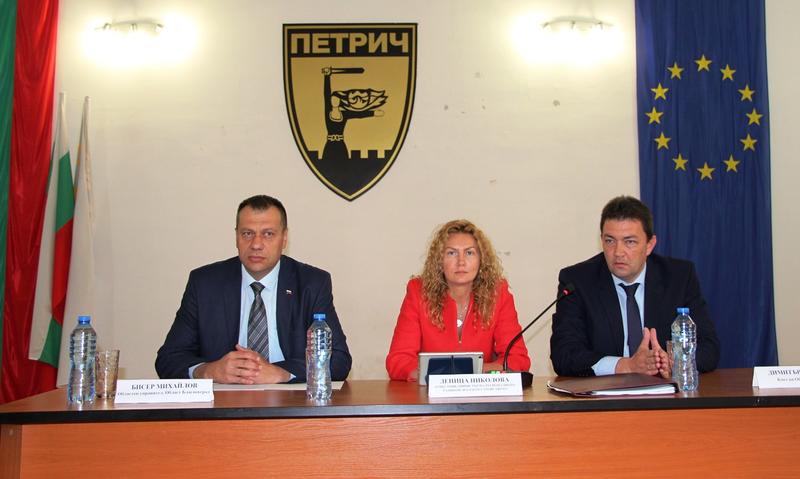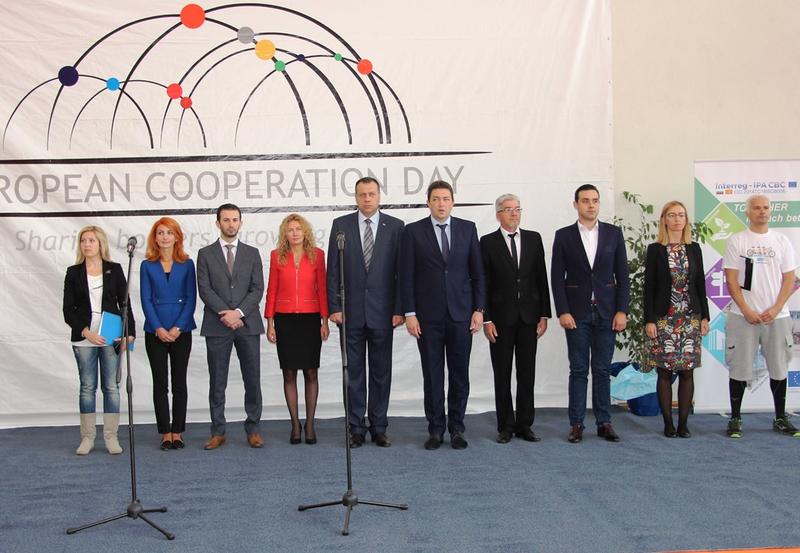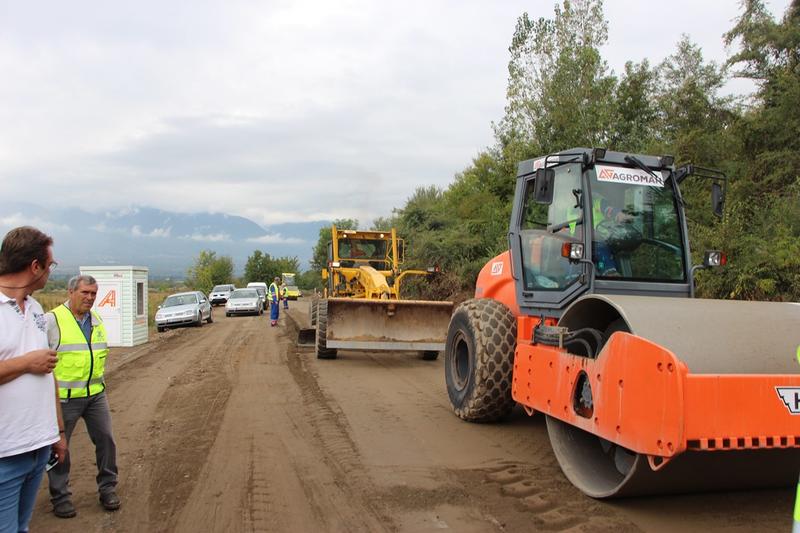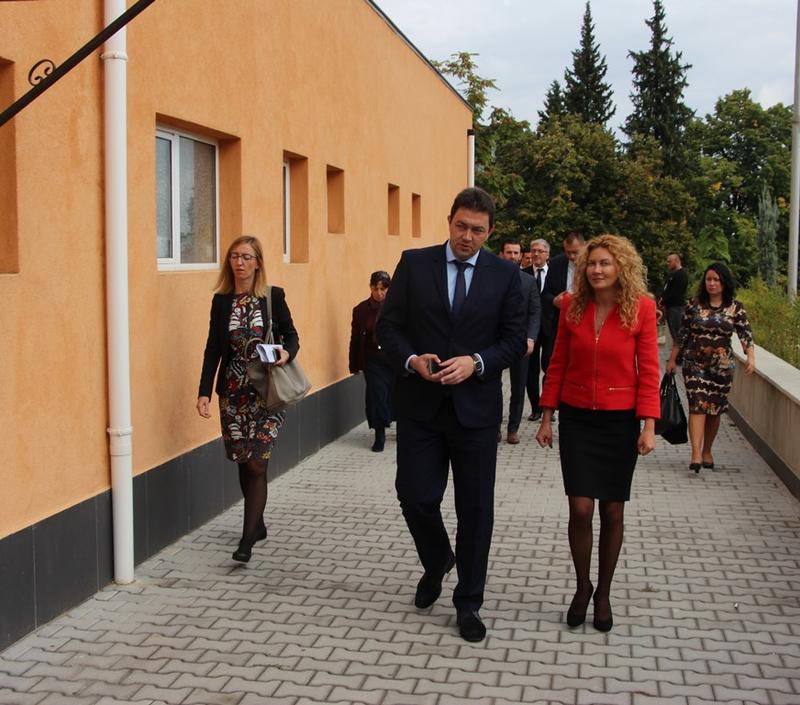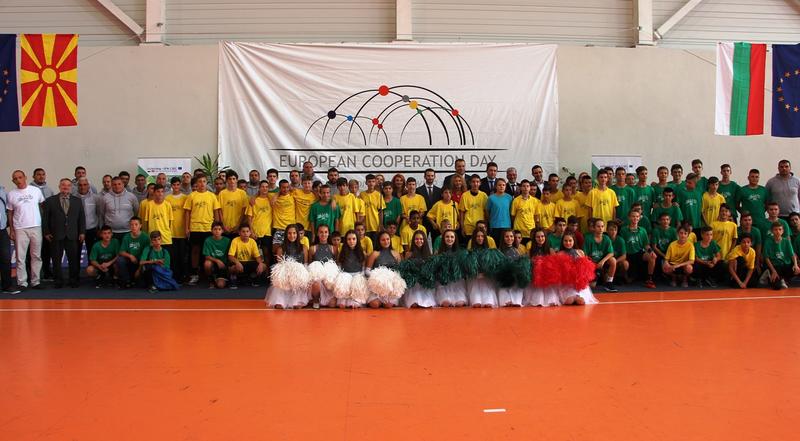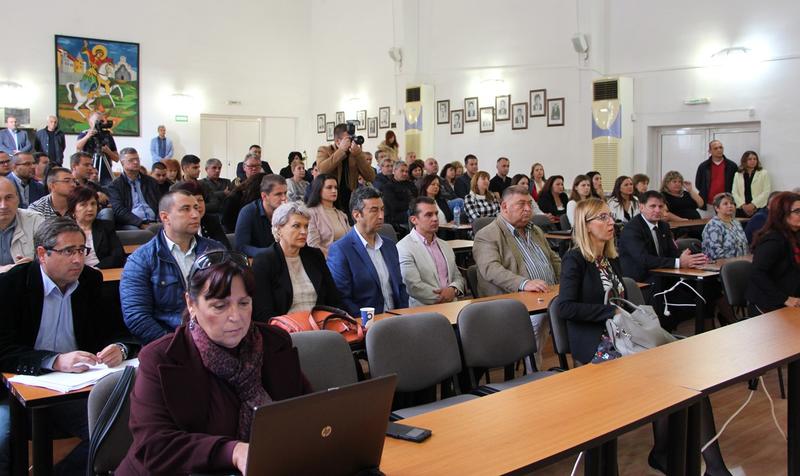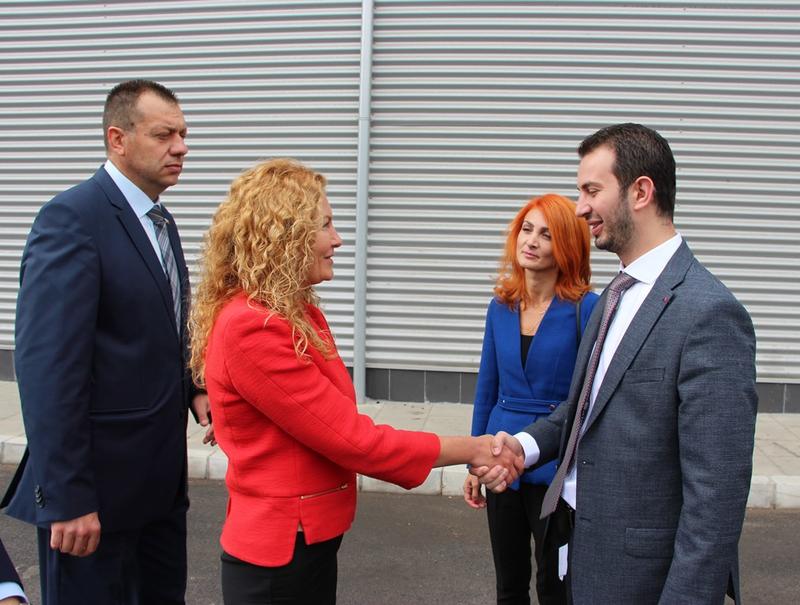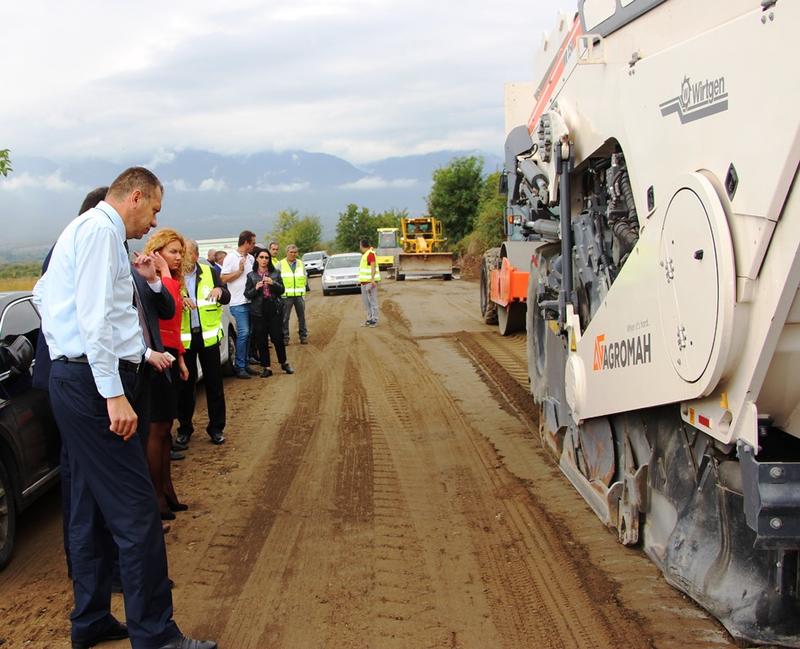Deputy Minister Denitsa Nikolova: We will seek an opportunity to increase EU funding for joint projects with Western Balkans
Deputy Minister Denitsa Nikolova: We will seek an opportunity to increase EU funding for joint projects with W
By Ministry of Regional Development and Public Works
Deputy Minister Nikolova and the Minister of Macedonia's local self-government Suheil Fazliu opened a sports celebration in Petrich
When we implement joint projects, when we have common goals and seek a common effect, we can do everything together and go forward. This was said by Deputy Minister of regional development and public works Denitsa Nikolova, who, together with the Minister of local self-government of Macedonia Suheil Fazliu opened a sports event at a facility in the town of Petrich. The joint initiative marked the Day of European cooperation under the motto "Common borders bring us closer".
The celebration was organized within the Programme Intterreg – Programme for cross-border cooperation Bulgaria – Macedonia 2014-2020. “I hope that within the programme for cross-border cooperation with Macedonia, we will be able to implement many more projects, so as to be able to achieve the common effect for a better future for children. With sports, we can achieve everything, without borders", noted Deputy Minister Nikolova.
In his speech, Minister Suheil Fazliu stressed that cross-border cooperation between the two peoples is of great importance and indicated that it should be deepened not only within the context of common European projects.
The sports celebration was joined by pupils’ teams from Petrich and Strumitsa, which participated in basketball, volleyball, and football matches.
Later, Deputy Minister Nikolova, Minister Suheil Fazliu, the prefect of Blagoevgrad Biser Mihaylov, and the Mayor of Petrich Petar Brachkov inspected the rehabilitation of the road III-1084 /III-108/ -Starchevo-Karnalovo-Parvomay. The third-grade road was used as a by-pass in the construction of lot 4 of “Struma” highway and was in a bad condition. The 13 km stretch is being overhauled, by laying a new 35 cm asphalt layer, it is being widened, technical facilities such as bridges, water drains, drainage curbs, friezes, etc. are being replaced. Repair works are valued at approx. BGN 7 million provided by the state budget. The road serves several big villages in Petrich municipality with a population of about 10,000 people and is an important link to the “Zlatarevo” border checkpoint. The road is also the main connection to the largest vegetable market in Blagoevgrad region, offering the products of local producers and visited by Greeks, Macedonians, and Serbians. Cement stabilization is presently being implemented of the road foundation according to a new technology guaranteeing a longer life of the asphalt. With it, there is no waste, and the old asphalt is recycled and put back into the construction.
“Improvement of the road infrastructure in the country is a main focus of the Bulgarian government. We are doing everything in our power for the cohesion of regions and improvement of communication, including also with our neighbouring countries such as Macedonia", stated Deputy Minister Nikolova and added that providing resources for road improvements is a main highlight as a policy and strategy for better connectivity.
The Mayor of Petrich thanked the Ministry of regional development and public works, as well as the “Road infrastructure” agency, for the provided funds for repairs of the road and stressed that it is of extreme importance for keeping young people in villages and ensuring their employment.
A public discussion of the programme for the upcoming presidency of the EU Council and the priorities in MRDPW's field of competence held in Petrich enjoyed great interest. The event was attended by representatives of local administration, employer, sector, and non-governmental organizations, academia, media, etc. Among official guests were the prefect of Blagoevgrad Biser Mihaylov, the Mayor of Petrich Dimitar Brachkov, the Mayor of Sandanski municipality Kiril Kotev, the Ambassador of the Republic of Macedonia HE Marjan Gjorchev, the prefect of Kyustendil Viktor Yanev, and others.
European integration of Western Balkans is among the main highlights of the Presidency of the EU Council, said Deputy Minister Nikolova. She noted that MRDPW follows the policy of cohesion with our Western neighbours through the programmes for European territorial cooperation. “It is extremely important that, during the debate for the annual financial framework, which will most likely be presented for the first time during Bulgaria's presidency, we seek opportunities to increase the resource and amount of funds provided for European territorial cooperation", said Denitsa Nikolova. The Deputy Minister expressed certainty that all funds provided by the EU for border- and territorial cooperation have a direct effect on the development of the Western Balkans. “The programmes for cross-border cooperation with Macedonia and Serbia, and the projects we are implementing indicated that, regardless whether the countries are EU members or not, we can implement jointly value-added projects for the entire EU", noted Nikolova. In the course of the presidency, MRDPW will play a key role in the debates for urban development and territorial cohesion. “We are responsible for policies for development of regions in the country, this is why it is important that we support investments in small and medium towns in the EU policy after 2020. This is important, in order to reduce depopulation, realize the potential for economic development and growth", added Nikolova. A key priority will also be tracking of the created partnerships between cities in the area of climate and the environment, urban mobility, innovative public procurement, etc.
“European solidarity shows that Bulgaria can develop, reducing the differences between regions with a main effect – the country's economic development", added also Denitsa Nikolova. She stressed that our country's main priority is to continue the balanced development of cities and towns in the periphery, in order to reduce migration processes leading to economic imbalances and depopulation of regions. This will encourage also achieving of cohesion and the balanced development of regions in the EU.



